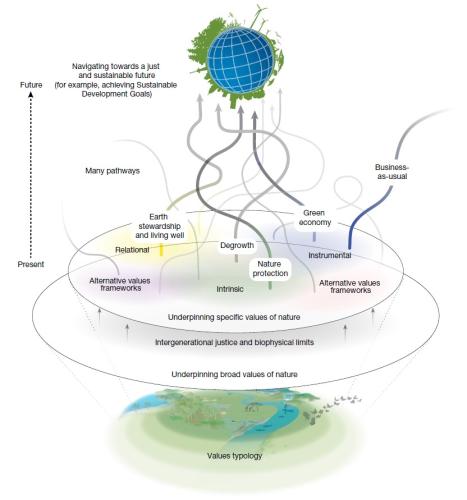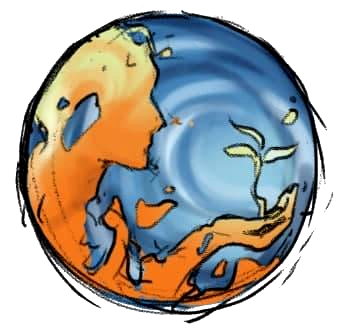Diverse values of nature for sustainability

Diverse values of nature for sustainability
Meta study on how nature is valued and a proposed framework and potential pathways for their adoption to better understand and apply relevant interventions.
A consistent challenge, among many others for regenerative development practitioners, is understanding and integrating natural processes. This article departs from the massive challenges posed by successive IPBES reports and explores the proliferation of studies on the valuation of nature. Such studies are often taken from specific points of view and are thus skewed and perhaps less useful in managing the kinds of interlinked challenges being faced by communities around the world.
Starting with a useful meta-study on different nature valuation methodologies and applications, the article suggests a framing methodology in order to help those practitioners who face multiple choices in adoption of study methods. Regenerators will find the framework encompassing four nested levels including world views / knowledge systems; broad values; specific values, and value indictors, to be of interest in thinking about their own transformation efforts. These nested levels are further informed by crosscutting perspectives from anthropocentric to bio- eco-centric to pluricentric with the whole presenting a range of potential perspectives to be examined our sought in change processes.
Relating the focus and purpose of these approaches the authors also frame them in the context of evolutionary paths ranging from "business as usual" to significant changes that at their higher leverage points result in systemic change via societal shifts in the values provided by nature.
From the paper's conclusion: "Nature’s values are expressed in and shaped by worldviews and knowledge systems, but also by power relations that underpin institutional structures in societies. Thus, enabling solutions to the global biodiversity crisis implies identifying and navigating these issues of values diversity and associated potential conflicts."
Lead author Unai Pascual and many co-authors. Published in Nature
